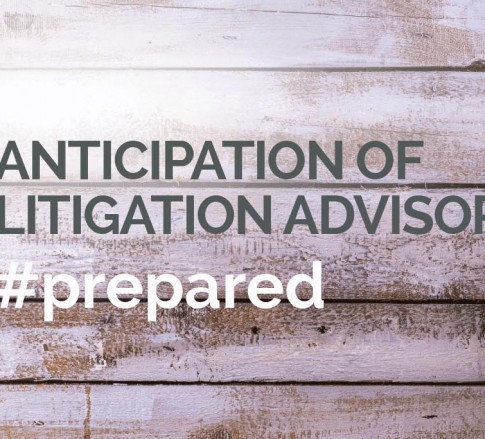“In Anticipation of Litigation” May Not Mean What You Think
May 17, 2018
By: Jill McIntyre
The work-product doctrine generally protects from discovery by an adverse party any materials prepared by or for a party, including by in-house counsel, “in anticipation of litigation.” As originally articulated by the United States Supreme Court in 1947, the doctrine was intended to protect from discovery written statements, private memoranda and personal recollections prepared by an attorney in anticipation of litigation. Much has changed in the past 70 years.
The work-product doctrine is now codified in the Federal Rules of Civil Procedure (and in similar state procedure rules) and it protects more than just the thought processes of attorneys. The doctrine now encompasses “documents and tangible things that are prepared in anticipation of litigation or for trial by or for another party or its representative.” A party's representative includes not only its attorney (including in-house counsel), but also an insurer, employee, or other agent working on the party’s behalf.
While it remains clear that not every document created by a lawyer constitutes "work product" entitled to protection, the evolution of the work-product doctrine has not led to a commonly accepted understanding of what the phrase “in anticipation of litigation” means. Despite their differences, court approaches to the question generally consider whether the document or tangible thing was created both: (i) before or during litigation (temporal); and (ii) with an eye towards litigation (motivational).
With respect to the temporal element, a lawsuit need not have been filed, but there must be some likelihood that litigation will follow. Thus, even if an attorney prepares memoranda summarizing facts related to a business, it may not merit work-product protection if the correspondence between the parties to date has not included threats of litigation.
Most courts determine whether the motivational element is met based on whether the documents and tangible things in question were created because of anticipated litigation. As the United States Court of Appeals for the Fourth Circuit has explained, “The document must be prepared because of the prospect of litigation when the preparer faces an actual claim or a potential claim following an actual event or series of events that reasonably could result in litigation.” National Union Fire Ins. Co. of Pittsburgh, Pa. v. Murray Sheet Metal Co., Inc., 967 F.2d 980, 984 (4th Cir. 1992).
Other Federal Circuits generally apply this “because of” test, but some have not yet settled on a single approach. As a result, there is a split among lower courts in those Circuits, with some courts applying the “because of” test and others instead asking whether the document at issue was prepared principally or exclusively to assist in anticipated or ongoing litigation. For example, companies communicating internally about how they might pay for an adverse judgment might create documents satisfying the former standard but not the latter.
Unless the U.S. Supreme Court resolves the question—and all the State Courts adopt the same approach—the discoverability of a document in a particular case will depend in many instances on the court that is making the decision. And because the courts apply their own work-product rules instead of conducting a choice of laws analysis, litigants will usually not know until they are sued what tests will apply.
It goes without saying that such uncertainty can have a substantial impact on litigation, both in terms of the impact of a given court’s specific approach to the temporal element and the difference between the scope of protection afforded by the "because of" standard (which is broader) and that provided under the "assist" standard (which is more narrow). For these reasons, no one should ever assume that they know what “in anticipation of litigation” will mean in their case. Instead, litigants must always consider what court is involved and the specific rules that court applies to determine whether the work-product doctrine applies.
Jackson Kelly’s Anticipation of Litigation Advisor is here to help you be #prepared for litigation.
Eric Whytsell is responsible for the content of this article
© 2018 Jackson Kelly PLLC



